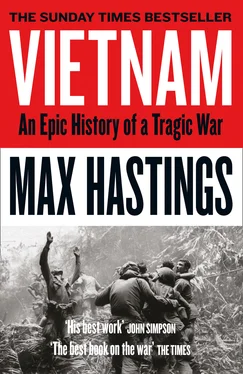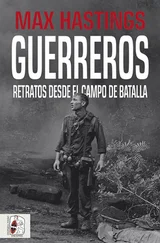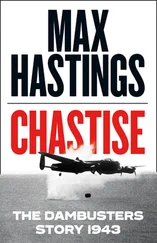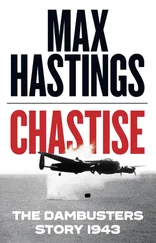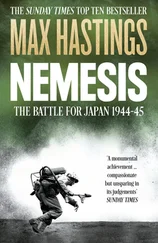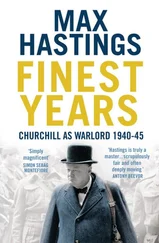On the following night of 1 May, Giap’s infantry assaulted Eliane 1, which they overran after ninety minutes of close-quarter fighting. Meanwhile on Dominique 3, Thai and Algerian defenders put up a tough fight before succumbing. In the Eliane 2 battle, de Castries lost 331 men killed or missing and 168 wounded, and now fielded not much above two thousand infantry against Giap’s fourteen thousand. The Vietminh showed off new weapons: Soviet Katyusha multiple rocket-launchers, formidable in their screeching moral impact. As the relationship between Navarre and Cogny became ever more sulphurous, the commander-in-chief threatened his subordinate with a court of inquiry, charged with leaking defeatist gossip.
The shades closed in upon Dienbienphu, where the stench of excrement, unburied corpses and decaying humanity was becoming intolerable. A trickle of reinforcements, volunteers to embrace catastrophe, continued to parachute into the camp, for the sole purpose of enabling the French delegation in Geneva to dispute the inevitability of defeat. Walking wounded were invited to rejoin their units: more than a few defenders manned trenches wearing mud-caked bandages. Langlais and Bigeard discussed a scheme whereby dispersed columns might break out through the jungle: they concluded, inevitably, that any sortie was doomed.
Then came another Vietminh attack. On the morning of 4 May the garrison’s wireless-operators heard a grim succession of voice messages from a lieutenant who had assumed leadership of the Moroccan unit on Huguette 4 after his company commander was hit: ‘There are only ten of us left around the CP … We are waiting for reinforcements … Where are the reinforcements? … Les Viets attaquent … I hear them … They are coming towards me down the trench … They are here … Aaah!’ On the evening of the 5th Cogny sent the hapless de Castries an imperious signal demanding ‘a prolonged resistance on the spot which now remains your glorious mission’.
During the ensuing twenty-four hours the garrison received a further air-dropped reinforcement of 383 men, of whom 155 were Vietnamese. On the morning of 6 May, intelligence warned de Castries to expect a big attack that night. Capt. Yves Hervouet demanded that Dr Grauwin cut the casts off his broken arms so that he could once more man his tank. At 2130 a Vietminh mine exploded beneath Eliane 2, which was then overrun in a brisk action fought in torrential rain; Capt. Jean Pouget led an unsuccessful counter-attack. Savage melees also took place on Eliane 4 and Eliane 10, which caused Langlais and Bigeard to radio aircraft overhead, cancelling a reinforcement jump: the perimeter was now so tight that parachutists were likely to land in the arms of the Vietminh. The last message from the officer commanding Eliane 4, lost soon after 2100, urged against shelling the fallen position, because every trench was crowded with French casualties. Meanwhile around the dressing station, in addition to the wounded and dead, clusters of men lingered slumbering through the long hours because – lacking weapons or a military function – they could do nothing else.
At 1700 on 7 May de Castries radioed to Cogny’s headquarters, saying, ‘We have done all that we can. At 1730, I shall send out emissaries.’ Cogny himself came up on the circuit, seeking to prevent a formal capitulation: ‘You must not raise the white flag. You should let the fighting die out of its own accord.’ De Castries professed to assent: ‘ Bien, mon général .’ His commander said: ‘ Allez, au revoir mon vieux .’ Then, from the dank, sultry bunker, de Castries passed orders to destroy as many weapons as his survivors could contrive before the formal surrender. Capt. Pouget wrote: ‘under the harsh, naked electric light, he looked ten years older than he had done in March’. Dienbienphu’s commander, seldom visible to his men, had shown none of the qualities that might have made him a hero. But it would be quite mistaken to hold him responsible for the fall of the encampment, ordained from the moment that its garrison was deployed so far beyond sustainable support. The Vietminh staked many more chips than the French could match, and now swept the board.
The battle petered out slowly. A ground operator aborted an incoming fighter-bomber strike, radioing call-sign César 5 : ‘We’re blowing up everything – goodbye to our families … Adieu César .’ One position, Isabelle, held out for some hours more: its twelve hundred men attempted a sortie which ended with two companies cut to pieces in a chaotic night fight. A Moroccan gunner named Mohammed ben Salah is thought to have been the last man to die, manning a 105mm howitzer hours after de Castries quit. The Vietminh found themselves with 5,500 prisoners, of whom all but a thousand were wounded. The French command had formally recorded 1,161 deserters, who now joined the ranks of the PoWs: in all, sixteen battalions of French and colonial troops were wiped off Navarre’s order of battle. The Vietminh cadre and musical bard Van Ky said wonderingly: ‘This was an unbelievable victory, something beyond the bounds of our imaginations. No one could figure out how we could have defeated such a powerful force.’ Col. Tran Trong Trung justly asserted that the victory was above all ‘a triumph of the will’.
More of de Castries’ men perished in captivity than had died in action. Once in a communist PoW camp – and some never got that far – a commissar addressed the French officer prisoners in characteristic fashion: ‘You are here for an indeterminate period, to be re-educated by work. You will live the same life as those whom you have oppressed, you will suffer like them, come to understand them. We shall guide you in your search for truth.’ Some 3,900 members of the French garrison were eventually returned to their own people, 43 per cent of those captured. Sixty Thais and nineteen Europeans escaped from the battlefield and hacked through a hundred miles of jungle to safety. De Castries’ first question to the naval officer who received him on his release late in 1954 was: ‘Is it true they want to shoot me?’
Only one in ten of 14,324 Vietnamese troops taken prisoner in French uniform during the course of the war returned alive. In justice to the Vietminh, their own people lacked medical support, and existed on the edge of starvation. It is nonetheless plain that Giap and his comrades were indifferent to the survival or extinction of compatriots who had chosen the losing side. How could it be otherwise, when they had sacrificed an estimated twenty-five thousand of their own followers to secure victory at Dienbienphu? Nguyen Thi Ngoc Toan, the mandarin’s daughter who had become a fervent revolutionary, served as a twenty-one-year-old medic in Giap’s army. In the wake of its triumph she was married to Cao Van Khanh, deputy commander of the 308th Division, at a ceremony held in de Castries’ command bunker.
On paper, the battle need not have been the decisive event of the war, because the French still possessed powerful forces. Giap’s army had exhausted itself, and was incapable of translating this local triumph into a successful general offensive. Yet France’s government and people could stand no more. Pierre Rocolle has written: ‘Dienbienphu became an imperious invitation to stop the shooting, because the will to pursue the struggle no longer existed.’ France’s American quartermasters had the worst of all worlds: they had provided sufficient military aid to fight a war, yet not enough to win it.
It is usually mistaken to assume that the outcome of any historical drama was pre-ordained, but there is an absolute lack of suspense about a narrative of France’s Indochina experience between 1945 and 1954: colonial rule there became unsustainable amid the strength of nationalist resistance together with the weakness of non-communist political elements – the mythical ‘Third Force’ which many Americans yearned to identify. Doug Ramsey, a US foreign service officer who would become a significant figure in Vietnam a decade later, said: ‘I wonder that we could have taken ourselves in, that many years in a row. It went back to Roosevelt making accommodations with the colonial powers. Think of the inanities of John Foster Dulles.’
Читать дальше
